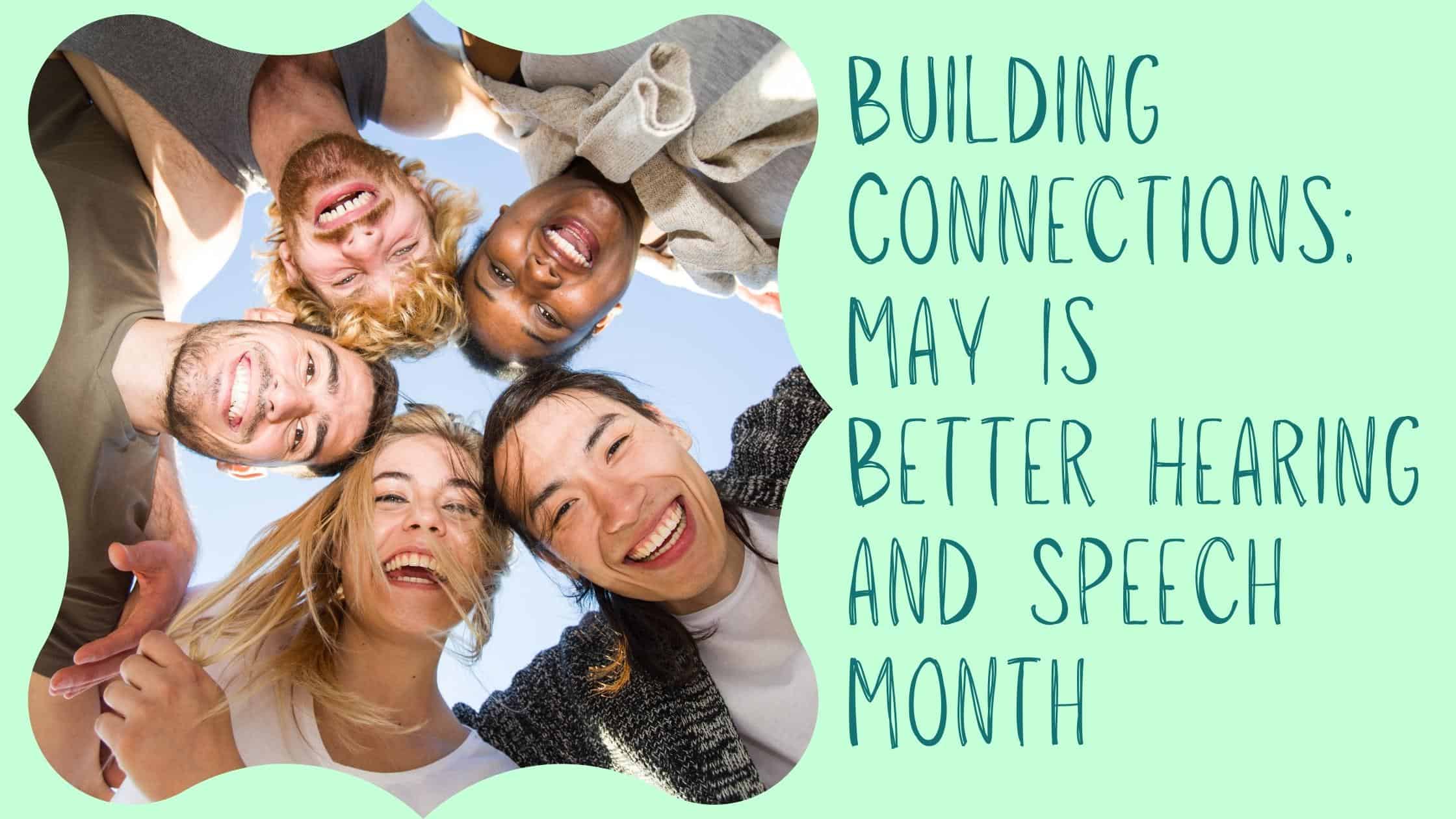
With spring weather becoming milder and COVID-19 restrictions easing across the country, you might be eager to reconnect with your friends, loved ones, and communities. You might also be ready to make new connections, meet strangers and expand the net of your social world.
Each May, the American Speech-Language-Hearing Association sets aside the month to celebrate Better Hearing and Speech Month. This year’s theme is “Building Connections,” and what better time to imagine how we can integrate an extended network of community members into our lives. If you are eager to form connections with others, you might wonder how to start.
Particularly those with untreated hearing loss can feel hesitant to take part in social activities due to the potential struggle to communicate in those settings. The following are some opportunities to connect with your communities, as well as ways to integrate despite hearing loss. Although some of these opportunities can ease the process of communication, the only durable solution for hearing loss is to seek treatment from a hearing health professional.
Connecting through Networks
Some of the strongest connections in our communities come through social bonds with family and friends. When we spend time with people in our existing network, we can build those connections through shared interests, common activities, or friends in common. In the most basic sense, these bonds of friendship and extended family are the fabric of community membership. If you are ready to rebuild, strengthen, or expand these connections, some communication strategies can come in handy for those with hearing loss. When community events arise, you might want to recruit a family member to assist you with these conversations. Although they do not serve as an interpreter, per se, they can help you understand pieces of the conversation that don’t make sense due to hearing loss.
Connecting through Activities
Many of our favorite activities are opportunities to connect with others, as well. Some of these activities, hobbies, sports, and creative outlets lend themselves to participation on your own, but clubs and groups are out there to connect with others about your skills, approaches, and special tactics you’ve developed. Crafts such as quilting, knitting, or scrapbooking might be primarily solo endeavors, but you can meet with a group to discuss your projects and learn from others. Other activities lend themselves to group participation more directly. Games and team sports are some of the best ways to connect, and you can all rely on one another to take part in the things you enjoy most. If you are worried about your participation in these groups, don’t hesitate to disclose your hearing loss, as well as desired accommodations, right upfront. When you join the group, you can let the leader know that you have hearing loss and will need to sit close to the front, for example.
Connecting through Values
Our deeply held values are some of the best ways to connect with our communities. Whether those values show up in faith-based organizations, volunteer service, social justice activism, or political campaigns, you can find others with shared beliefs and principles through these groups. These groups tend to offer an entry point that moves quickly from casual conversation to our core selves, and communication is crucial to getting the most out of your participation.
As with other types of groups, assistance from others and disclosure of hearing loss is a good starting point, and you will likely find that others are willing and able to assist you in the ways you need. However, in each of these contexts, you will find that accommodations only go so far. The only durable solution for hearing loss is diagnosis and treatment provided by a licensed hearing health professional, and our staff is here to help you make the transition from hearing loss to assistance.
We will begin with a consultation about your needs and a thorough hearing exam to determine the details of your hearing ability. With that information in hand, we can recommend the right hearing aids for your individual needs, including how to use these aids in the activities and groups you enjoy the most. If you are ready to connect with your community in a deeper way, the first step can be seeking assistance for hearing loss.
